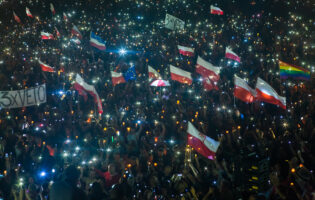Preparations for the NATO Summit: a talk with Ambassador Dr. Michael Koch
The American-German Institute organized an afternoon discussion on Wednesday, May 9, 2012 with Ambassador Dr. Michael Koch regarding the NATO summit in Chicago on May 20-21, 2012. Experts purport that the summit will emphasize the organization’s mission in Afghanistan. With his experience as Special Envoy of the German Federal Government to Afghanistan and Pakistan and his four-year tour as Ambassador to Pakistan, Dr. Koch offers deep understanding of the conflict in Afghanistan and regional animosities between Middle Eastern neighbors complicating NATO’s military endeavors in this nation.
Ambassador Koch began the discussion with an overview of NATO’s plan for Afghanistan from 2012 through 2014. By the end of 2014, NATO hopes to withdraw all combat troops from Afghanistan and relinquish security responsibilities to domestic military and police forces. These forces, Ambassador Koch added, are currently being trained by NATO and will provide invaluable support to the nation in the absence of foreign combat forces. Training of these forces will require approximately a $4.1 billion investment, financed domestically and internationally. Furthermore, member nations hope to forge bilateral agreements with Afghanistan in order to promote sustained regional stability. Ambassador Koch emphasized the importance of developing national policy to bridge the divide between the insurgency and Afghanistan’s government. This aim, he added, will pose difficulties as Afghanistan’s insurgency remains highly fractured, and thus, difficult to negotiate with. Following the withdrawal of combat troops in 2014, NATO intends to remain committed to its mission through continued civilian support and reconstruction of infrastructure in Afghanistan. The Ambassador expressed optimism for the plan’s flexibility and sophistication while admitting that many factors may complicate the transition of power to Afghanistan.
Following the description of NATO’s plan, members of the audience at AGI posed questions to Ambassador Koch regarding potential precluding factors for stability in Afghanistan. When asked what would compel the Taliban to negotiate with domestic political bodies, Ambassador Koch cited that once foreign military forces depart from Afghanistan, the Taliban will suffer a breakdown of their narrative that urges the expulsion of foreign military. As a result, Ambassador Koch predicted that the Taliban will tire of conflict and be more apt to negotiate. Ambassador Koch continually emphasized that NATO will maintain steadfast commitment to stability in Afghanistan as not to impel insurgents to wait out the organization’s presence in the nation. After addressing domestic complications for peace in Afghanistan, members of the audience shifted their questions to regional stability concerns.
With its long history of poor relations with Afghanistan and the prevalence of the Taliban within its borders, Pakistan remains Afghanistan’s most crucial neighbor in this period of transformation. To address concerns about relations between these nations, Ambassador Koch explained that a dichotomous perception of Afghanistan is emerging within Pakistan. While some Pakistanis continue to perceive Afghanistan as a puppet state under the Taliban’s control, the Ambassador emphasized that increasingly more citizens regard peace in Afghanistan as essential for promoting stability in the region. Despite this optimism, Ambassador Koch reaffirmed that regional diplomacy can only be achieved between two willing parties, and the path to Afghan-Pakistani solidarity is marred with complications.
Ambassador Koch admits that significant obstacles such as a fractured insurgency and problematic relations with Pakistan may preclude sustained stability in Afghanistan. However, he maintained that, despite these complications, NATO’s plan for Afghanistan from 2012 through 2014 offers the highest possibility for success in this mission.







